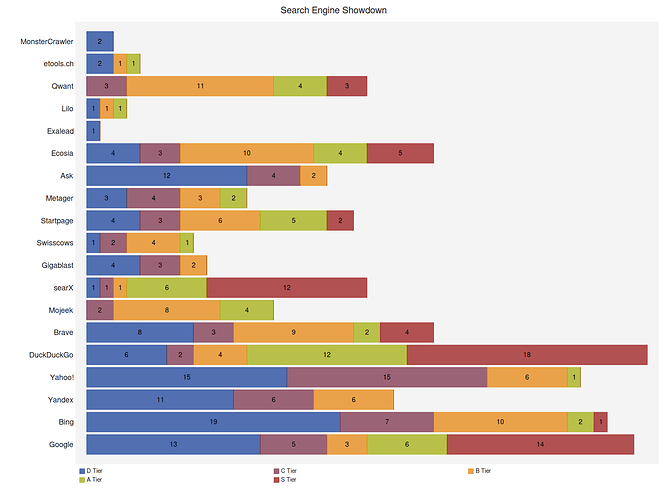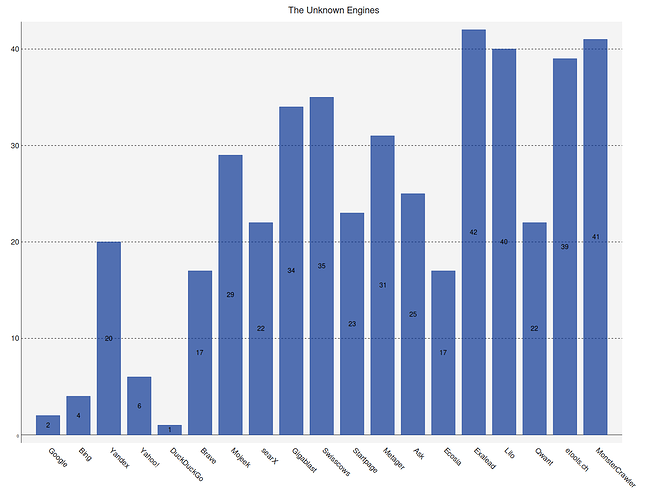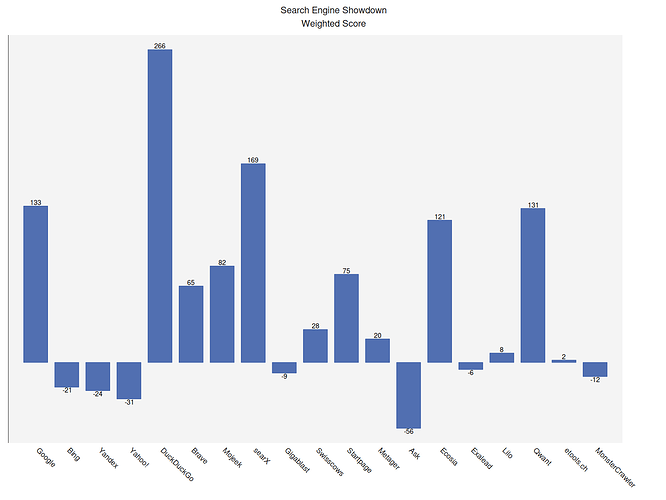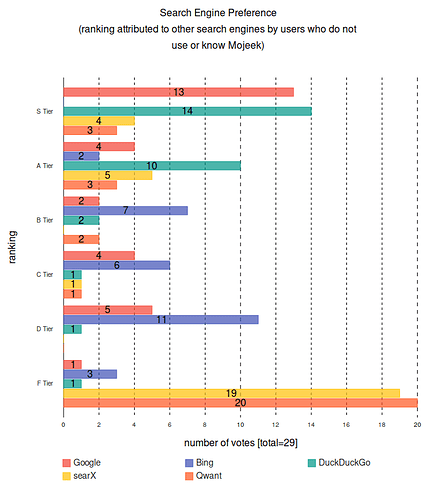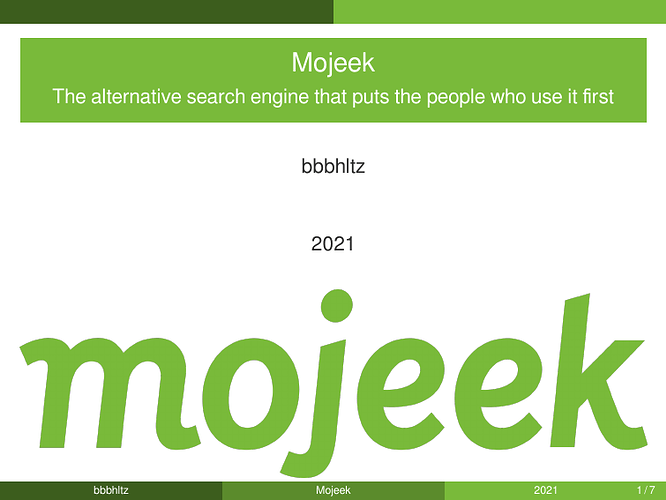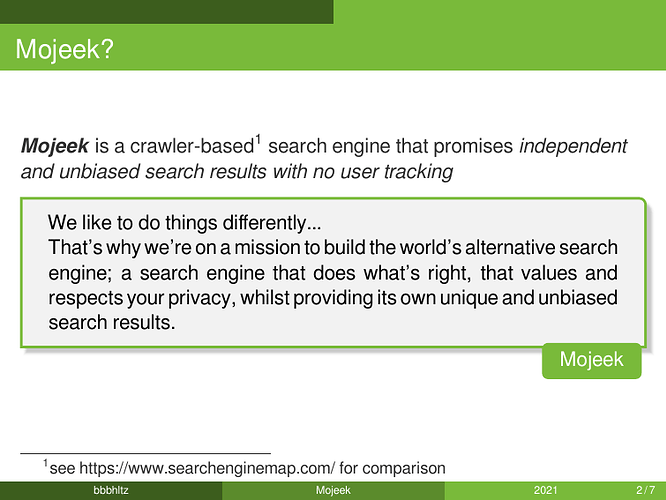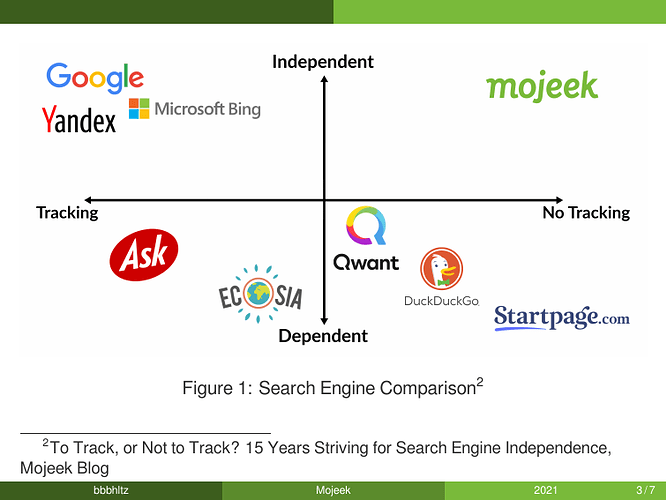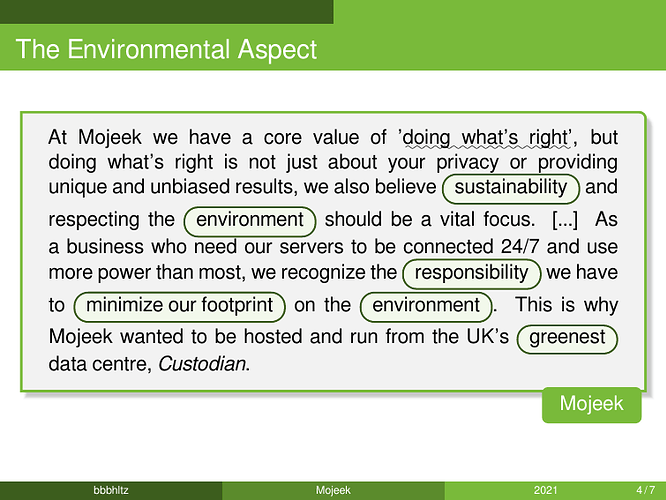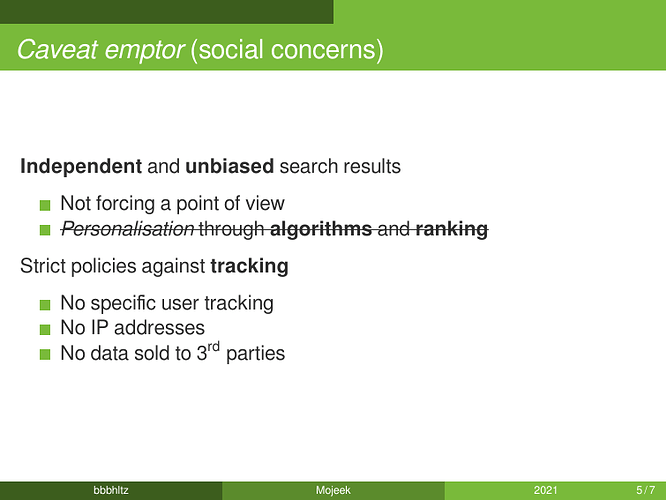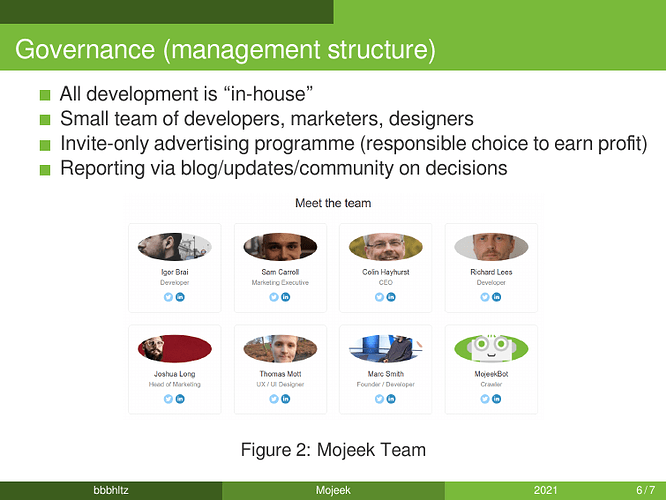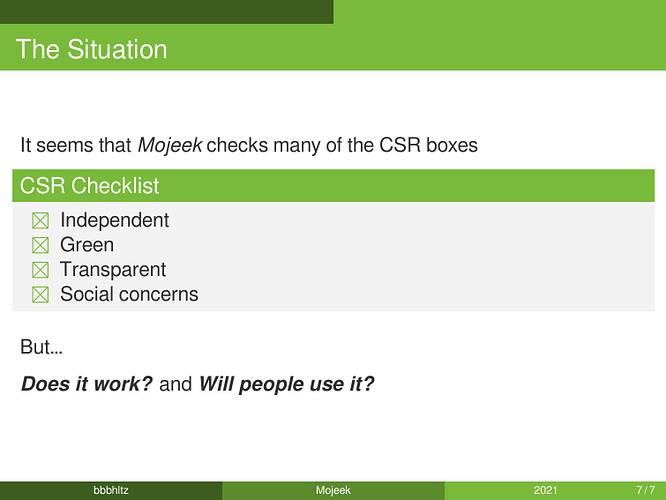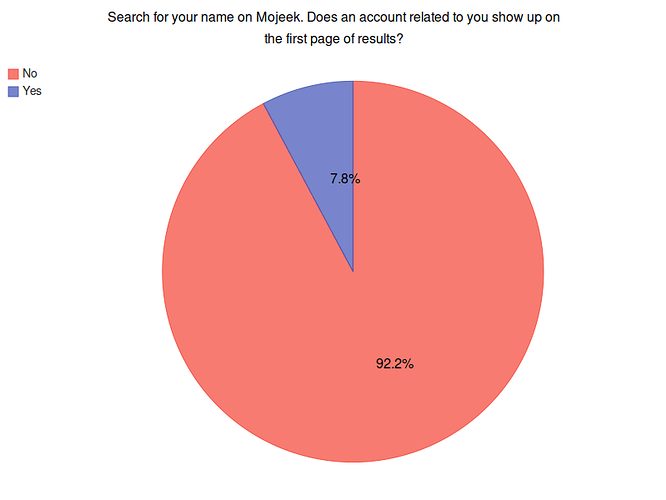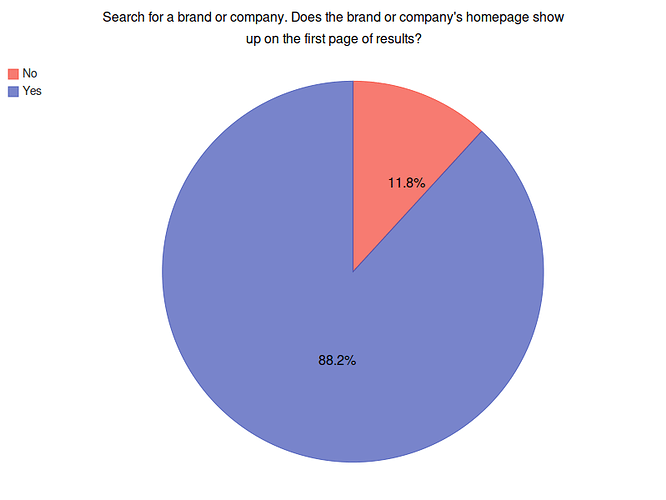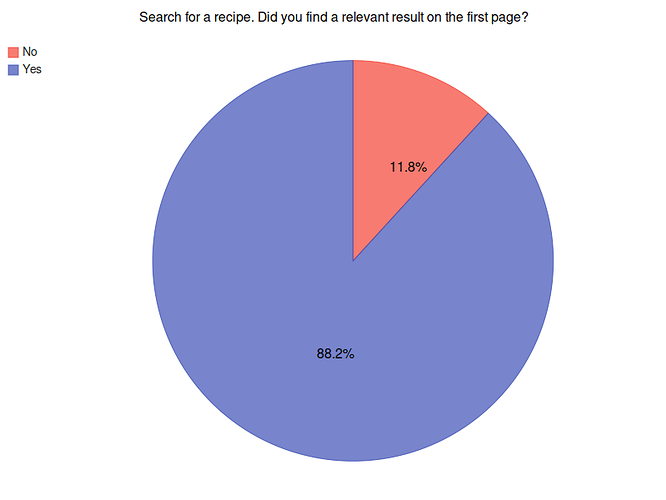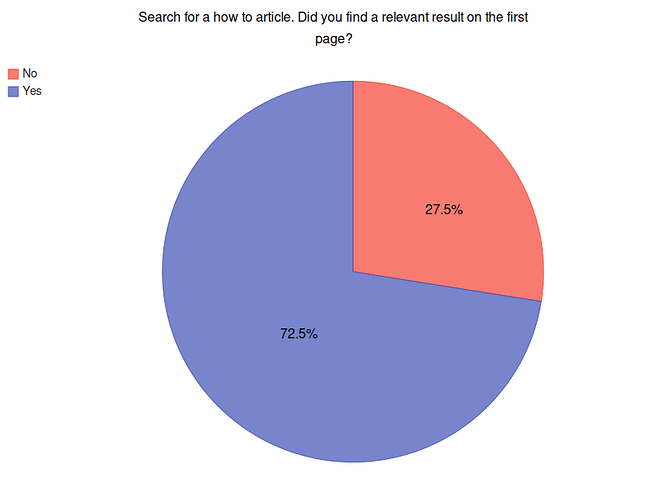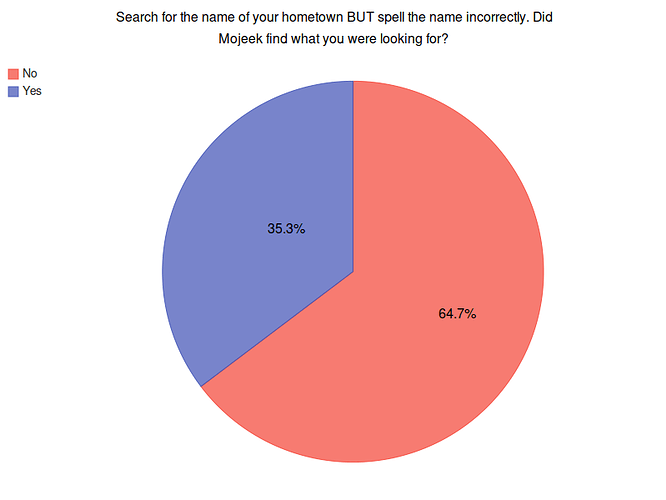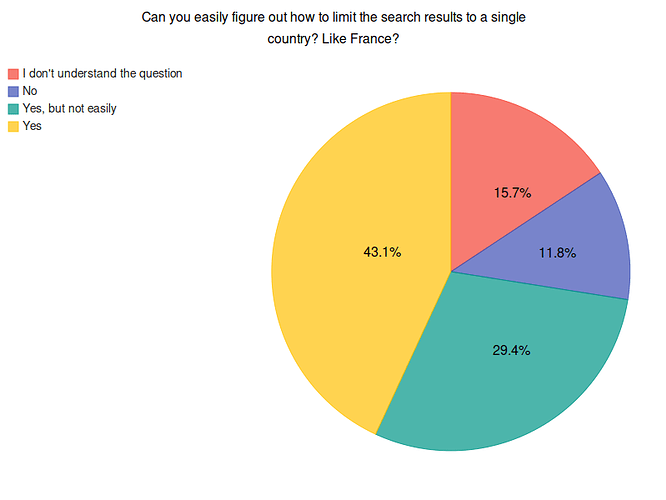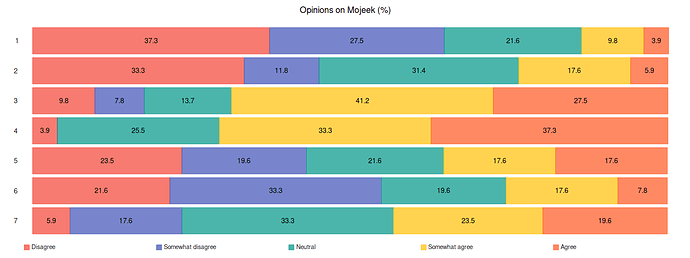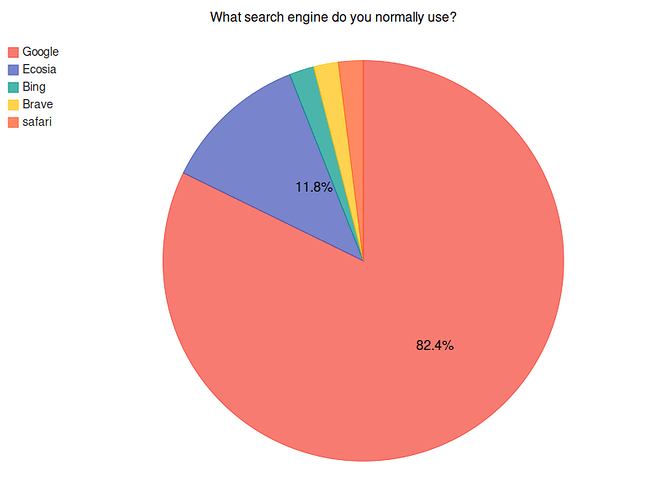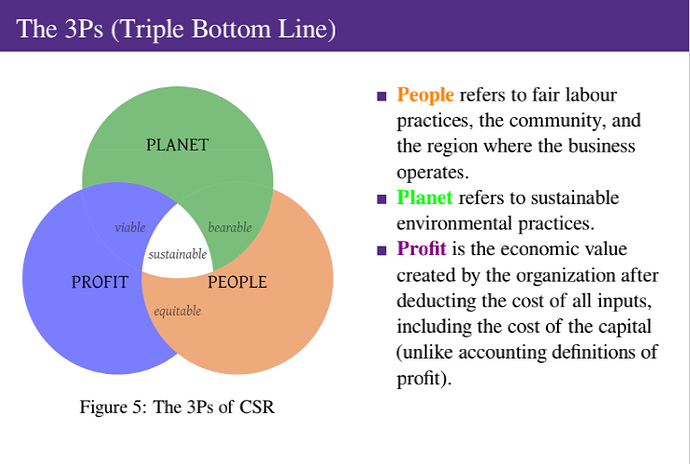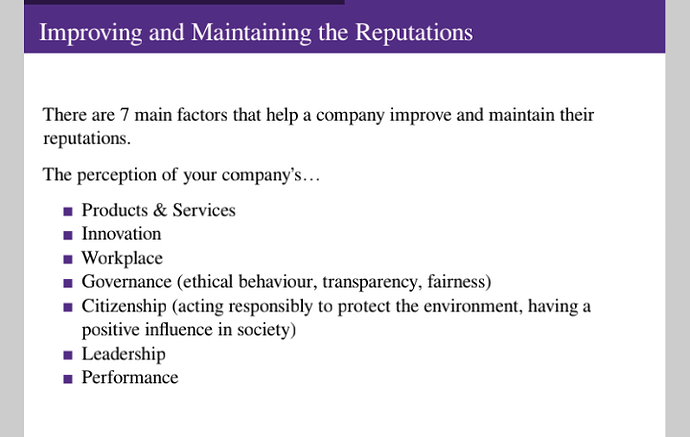I suppose I could create a second topic, but I feel like that is unnecessary. Some parts of what follows are off-topic, but the whole thing is feedback…
Context
I teach at an international business school. Every class I teach is required to have a sequence on Corporate Social Responsibility (or something adjacent). Much of the time, we focus on the bad companies, looking at the dirtiest of dirt — think Chiquita/United Fruit Co… I wanted to spend at least one lesson looking at what companies do right, but not focus on just the environmental aspect. Weeks ago, before discovering the existence of the Mojeek Discourse Community, I had planned a very short (10-minute) activity. I needed my students to use a product that represented the ethical counterpart to a product that they all had some familiarity with. At first I planned on using DuckDuckGo, but then by using Privacy Browser on my phone I discovered Mojeek. It was the perfect choice because my students all come to class armed with MacBooks and iPhones.
Presentation
Before giving them a survey to fill out, they were subjected to a short introduction.
Slides
The survey took an average of under 10 minutes to complete.
Findings
The survey was presented to 75 students over the course of 3 weeks. Somehow, because my students don’t pay attention and some of them don’t know how to access their school email (no joke) and when they do the links do not open for reasons or they don’t don’t realise they can also access their email via webmail, I received 51 answers. 
They were presented with a form of “web quest” and asked to report their findings via the survey.
1. Search for your name on Mojeek. Does an account related to you show up on the first page of results?
One student shares a name with more than on pornographic actresses…
2. Search for a brand or company. Does the brand or company’s homepage show up on the first page of results?
2.1 What company did you search for?
Looking at the companies they searched for, it appears the students were confused. Some searched for products rather than brands, and they incorrectly reported reported no in some instances:
- Gucci — Can be found on Mojeek; first hit for me.
- Airdrone — I think this is a product rather than a brand? Or they spelled something wrong?
- Netflix — First hit.
- Nestlé — First hit.
- Dior — First hit.
- Apple — First hit.
As far as I can tell, all brands were located on Mojeek.
3. Search for a recipe. Did you find a relevant result on the first page?
4. Search for a how to article. Did you find a relevant result on the first page?
4.1 What did you search for?
Here are the searches (sic) that were deemed to return irrelevant results:
5. Search for the name of your hometown BUT spell the name incorrectly. Did Mojeek find what you were looking for?
I didn’t ask for hometowns, privacy and all that…
6. Can you easily figure out how to limit the search results to a single country? Like France?
Students no longer learn how to use tools, it is assumed they know how to do things like this.
6.1 If you wanted to find all mentions of the word “France” on the website “cbc.ca” excluding results mentioning “Paris”, what would you type?
Five students found the solution. I am quite sure that one of them shared the answer. It confused them. Using advanced search options or operators in the search field is not something they have ever learned to do.
Opinions
They were asked their opinion on the following statements:
- You would use Mojeek
- You would recommend Mojeek
- You like their idea
- You think the company has good values
- You don’t understand why something like this exists when most people use Google
- You like the presentation of the site
- You found the site fast and responsive
This is where the ideas about CSR/ESG and reputation came into the picture. The students have generally favourable opinions about the missions and values, which is what I was hoping to see. The opinions also show a hesitation to use or recommend the service despite a majority finding the site to be fast and responsive.
Keeping in mind that they used it for less than 10 minutes, the only conclusion that can be drawn is that first impressions matter.
Write a single sentence comment about your initial impressions of Mojeek
| Positive/Mixed |
Negative |
| a lot of things to improve but good idea |
I don’t understand the point |
| Great but need time to adapt |
A bit “has-been” |
| The search engine promotes good values but seems to be a work in progress |
It’s useless because not precise enough and Google already exist. |
| i like the application because it doesnt keep our information |
I don’t understand what is the real goal of this website, cause’ Google is more efficient and more known. |
| the green is nice |
Meh! |
| It’s just a habit to adopt in order to use Mojeek every day |
It looks like an old search engine created in the 90s but not really. good discovery |
| It is cool but not really efficient |
that is not very efficient |
| good |
It doesn’t seem as powerful as Google |
| good web site but google is more practical |
kind of has-been |
| Nice to use but I will continue to use safari |
It is easy to use. |
| It’s a site that seems useful but I don’t see the interest in comparison with Google |
I don’t see the interest |
| I think that they have good intentions but I will continue to use Google |
I think the concept is interesting but the interface is quite obsolete |
| great |
the platform is very basic |
| GOOD |
Not competitive enough against Google |
| The site is fine and the concept is great, the only thing is I have the impression that the results are less interesting |
The site looks like all the others searching sites |
| I am agreeably surprised |
The site needs more colour |
| Neutral website / Need to get a better design to attract more people |
The site is not attractive |
| I find it really intuitive and the design is nice |
disgusting |
| fast but useless |
Work in progress |
| I think the idea is great but as many other CSR project, it is hard to put in place |
Not very precise, lack of rigour |
| fast |
It is less pleasant than Google because the results appear only with lists of articles, while on Google there are images that appear for example: it is much easier to identify the sites on Google |
| The idea is good and the values are great but the page is not attractive |
|
| It is very fast and precise. The absence of ads is pleasant because we have direct access to the results of our research without it being biased. |
|
| It’s user-friendly, and fast |
|
| What I like the most is the values of this search engine |
|
| Nice |
|
I highlighted my favourite comment because it supports the idea that some people just use the default and never consider other options. It also underlines that there are some members of the so-called generation of digital natives (or digital residents) that are, in fact, not that knowledgable of digital tools.
Some of the negative comments are about the design of the page. Comments about being unattractive or lacking in colour are expected. This recent blog post from Filteroff that made the rounds talks about this issue as well:
many [users] do not like “millennial minimalism.”
What search engine do you normally use?
Thoughts
My personal conclusion from this is influenced by the fact that I know these students. I have been watching the decline over the years. I have no doubt that some of them are proficient users of search engines, but I know for a fact that the majority just don’t have the reflex to click on a link, or open it in another tab to investigate later. This is a public that has multiple browsers open at the same time, all with multiple tabs, some of them duplicates of Facebook in order to maintain multiple conversations at the same time.
Asking them to use a different search engine was not a nice thing to do. Their expressions showed it. They wanted their Google fix after this activity.
